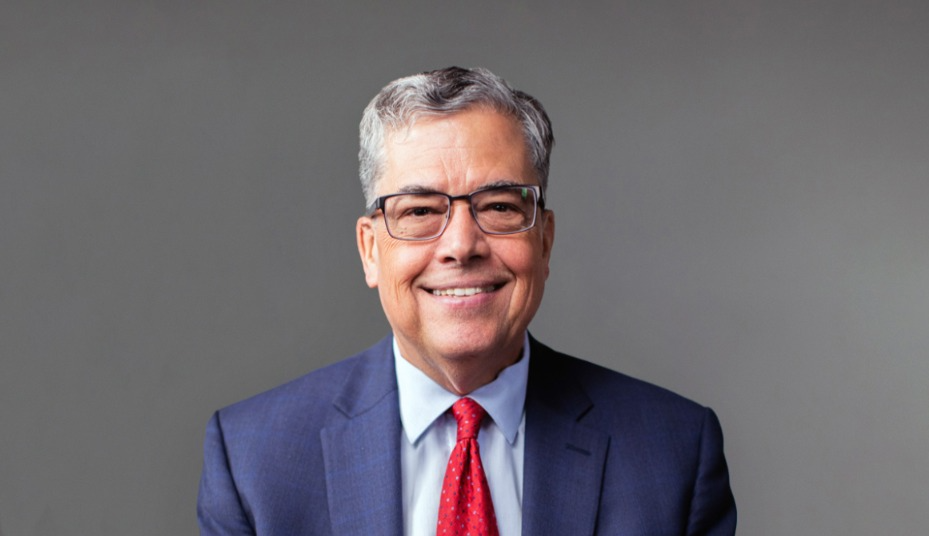CUA on Tap with President Peter Kilpatrick

Image Courtesy of the Catholic University of America
By Zachary Lichter
On Thursday, October 13, 2022, Dr. Peter Kilpatrick, the sixteenth president of the Catholic University of America, spoke about his testimony of faith at this month’s CUA on Tap.
The talk began with Madeline Naleski emceeing the event, and she summarized Kilpatrick’s career before he became president of CUA. Kilpatrick began his career as an assistant, associate, and full professor of chemical engineering at North Carolina State University (NC State) from 1983- 2007. He would then become the associate head of the chemical engineering department from 1996-1999 at NC State. From then on, he served as the head of the chemistry and biomolecular engineering department at NC State from 1999-2007. He later became the founding director of the Biomanufacturing Training and Education Center at NC State from 2004-2007. His next position was at the University of Notre Dame, where he was the Dean of Engineering from 2008-2018. He launched the first Ph.D. program at Notre Dame with the Pontifical Catholic University of Chile, later expanding into Brazil and Hungary. Afterward, he became the Provost and Vice President for Academic Affairs at the Illinois Institute of Technology. Kilpatrick has received numerous teaching and research awards, including the ASEE Regional Teaching Award.
Kilpatrick began his talk by mentioning how people’s lives are not defined by how many patents they have, awards they have won, or even the achievements people have made in their lifetime. He posed to students the question ‘What is your value as a person?’ He answers that a person’s value lies in God’s love.
Kilpatrick also discussed that he was not raised Catholic. When he was ten, he experienced a personal “Great Awakening.” His close friend, Larry Mosely, was the son of a Methodist minister; during this time, Kilpatrick experienced his “Great Awakening.” Kilpatrick asked his parents for ten-page books called the “Bible Series,” which are books based on the Bible written in the language appropriate for early teenagers. Since his dad was in the military, Kilpatrick would then move to Turkey and say goodbye to Mosely and his friends.
Kilpatrick met his wife, Nancy, in a chemistry class when they were juniors at Occidental College in Los Angeles, California. They did research together one summer with a group of classmates where they got to blow glass. Nancy struggled with blowing the glass, and he asked her, “Would you like me to blow the glass?” July 11, 1977, was their first date, and he took her to see A Bridge Too Far, a movie about the Allies in World War II. Both of them thought the movie was boring. Kilpatrick planned to take her to another movie, but Nancy decided they should just have dinner and talk. They would then become engaged in August 1977.
When Kilpatrick and Nancy were engaged, Nancy wanted to get married in the Catholic Church and told Kilpatrick that he had to see a priest. When Kilpatrick met with the priest, the priest asked if he would raise his kids as Catholic. At that moment, the priest helped Kilpatrick decide that he wanted his kids to be Catholic. Kilpatrick mentioned that it was not for Nancy, who grew up Catholic, and if it wasn’t for her grandmother immigrating to the United States from the Austro-Hungarian Empire. Right before World War I, he would not have become Catholic.
Kilpatrick and his wife have four children. When Kilpatrick had his first daughter, Elizabeth, they wanted to baptize her, but they could not because they both needed to practice their faith.
Kilpatrick then advised students that if they have doubts about their faith, they should pray about it. He then talked about why he came to CUA, that his Catholic faith is the second biggest thing in his life, next to his wife. He thanked God for rescuing him and owes a lot to God and the Catholic Church.
Kilpatrick then discussed his previous career at NC State. When he became the Dean of Engineering at Notre Dame, he said that he felt Our Lady summon him to take that position. Long into his position, however, Kilpatrick said, Notre Dame removed him from the position, in part because several administrators disliked that he wanted to hire more Catholic faculty: “They canned me after two terms as Dean. I had been Dean for ten and a half years; I doubled the enrollment [and] I quadrupled the research expenditures.”
He applied for three jobs, which included being the Provost for the Illinois Institute of Technology. After working at the Illinois Institute of Technology for four years, his wife Nancy told him to retire since he had worked hard for thirty-nine years and she wanted to move back to North Carolina.
When his friend Carter Sneed called him, asking him to be President of Catholic University, Kilpatrick initially said no because he wanted to retire. He told CUA that he would not be president unless they shared with him all the financials that CUA had. Kilpatrick experienced a series of interviews, and the presidential search committee contacted him to become the sixteenth president of CUA. As Kilpatrick reflected on his career, he thought God was behind everything that happened. He said that God works through each person, and the people we meet wound us. Kilpatrick concluded his talk by saying that when Elizabeth was engaged, he encouraged her to go to confession just so she can have a good start to her marriage. Elizabeth ended up going to confession, and afterward, the priest said to him “You’re a really good dad!”
Sophomore chemistry major Elisabeth Walsh commented on the President’s talk.
“I think his faith and spiritual life will influence his tenure as president,” Walsh said. “As we [have seen] from our last president, a lot of policies through our school, stuff like that were surely influenced by President Garvey’s faith life. I’m sure the same thing will happen with President Kilpatrick once he gets more involved over the year.”
Zachary Brotzman, a senior nursing major, also offered his thoughts.
“I really liked his talk because he incorporated things that weren’t necessarily faith related,” Brotzman said. “One of my beliefs in faith comes from the Svarian brothers is that ‘You have to find God in a simple ordinary flow of everyday life.’ And I feel like President Kilpatrick emphasized that little things influence his faith. Not just having this big formation moment, but being able to get married, having his faith, and having his children baptized. I thought that was just an interesting way of how he incorporated his talk.”
After Kilpatrick gave his talk, Naleski conducted a Q&A session with him. The event ended with a raffle.
Note: this article was updated to include a quote from President Kilpatrick on his departure from Notre Dame.







